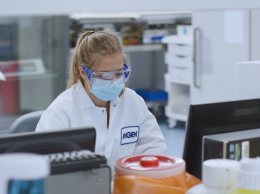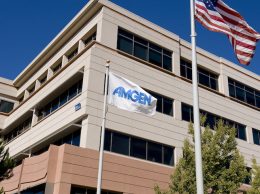Atara Biotherapeutics, a Thousand Oaks firm that emerged last year with major Silicon Valley backers and licenses to develop six Amgen assets, has raised $38.5 million to pursue treatments for dialysis complications and ovarian cancer.
The deal represents one of the first major forays into so-called out-licensing for Amgen, which has tended to either buy new treatments in deals, like its $10.4 billion purchase of Onyx Pharmaceuticals, or develop them internally, like its bone drug denosumab.
Atara emerged from stealth mode in late 2012 with an undisclosed amount of capital from Kleiner Perkins Caufield & Byers, which took a majority position. Amgen took a minority stake. The two said the firm would be led by Isaac Ciechanover, a Kleiner Perkins partner and medical doctor, but did not talk publicly about which drugs it would pursue.
But over the past 15 months, research has progressed rapidly, and Atara said the new capital will go toward its two lead programs, called PINTA 745 and STM 434. PINTA 475, which is further along in the trial process, would treat a common dialysis complication called protein energy wasting, building on one of Amgen’s core markets for kidney disease drugs. The other drug, STM 434, would treat ovarian cancer and other solid tumors. The company also has a drug for cancer-related weight loss that has not yet entered clinical testing.
“We founded Atara with the goal of accelerating the development of novel biologic compounds to bring meaningful therapeutic advances to conditions underserved by innovation in recent years,” Ciechanover said in a statement. “This financing allows us to advance our pipeline and moves us closer to achieving our mission of addressing substantial unmet medical needs.”
In the most recent round of financing, investors Amgen Ventures, fellow biotech firm Celgene Corp. and EcoR1 Capital joined existing investors Alexandria Venture Investments, DAG Ventures, Domain Associates and Kleiner Perkins.
Amgen is aiming for new kidney and cancer blockbuster drugs with Atara. Amgen CEO Robert Bradway has plugged holes in with the company’s anticipated $18.3 billion revenue stream, and its new bone drugs are breaking the billion-dollar mark, but pressure remains to find new sellers to keep up the momentum — and keep up the dividend increases.
The question for the Tri-Counties is whether Amgen, Ventura County’s largest private-sector employer, will try to base any of that growth here. The company has put an increasing focus on international expansion, snapping up a Turkish drug distributor for more than $700 million last year. When the company announced plans to build a strategic research and development center, it was with ShangiTech University. “Expansion into China is a business priority for Amgen and opening this R&D center is another clear and important step forward in Amgen’s commitment to the China market,” Sean Harper, Amgen’s chief medical officer, said in a statement in September.
It remains unclear whether Atara will do its hiring in Ventura County or in the Bay Area, where it maintains a facility just south of San Francisco in Brisbane. The company did not return a request for comment.
But Brent Reinke, a corporate attorney and co-founder of the Bio Science Alliance, a group that formed in the wake of Amgen’s 2007 layoffs to try to retain life sciences talent and companies in the region, is hopeful that some of Atara’s future growth will happen here. “It’s one of the first examples of a company that has done an out-licensing deal with Amgen and has a presence in this area,” he said.
Atara may be Amgen’s first out-licensing deal, but it is not the first company with Amgen connections to raise capital in recent years. Across the Los Angeles County line in Calabasas, Kythera Biopharmaceuticals, a cosmetic biotech firm staffed with several former Amgen executives, raised $90 million in an initial public offering. Less than a month ago, Thousand Oaks-based ImmunGene, a cancer treatment firm led by a former Amgen scientist, raised $9 million from Ally Bridge Group, an investment group with ties to Hong Kong.
So far, those companies are small compared to Amgen, leveraging contract labs to make the most of their startup capital. ImmuneGene has only a handful of employees, and Kythera, though publicly traded, has only 60.
But Reinke is hopeful that in the long run, more capital will mean more jobs.
“What this [Atara deal] clearly indicates is that progress is being made in this area to develop a critical mass of life science companies,” Reinke said. “It’s another indication that the hurdle of being able to attract institutional funding — especially well-known institutional funding — is becoming less of a hurdle.”






 Print
Print Email
Email

















